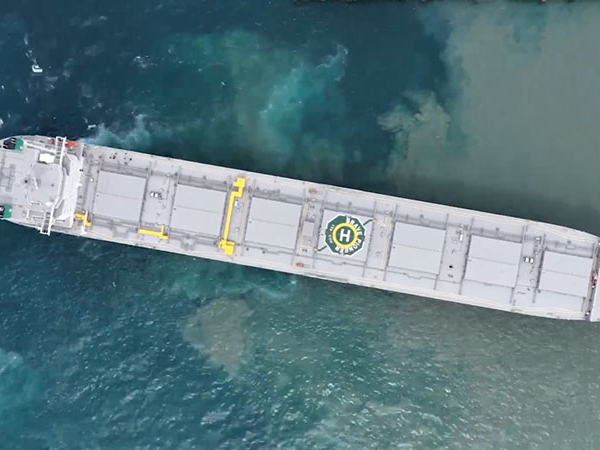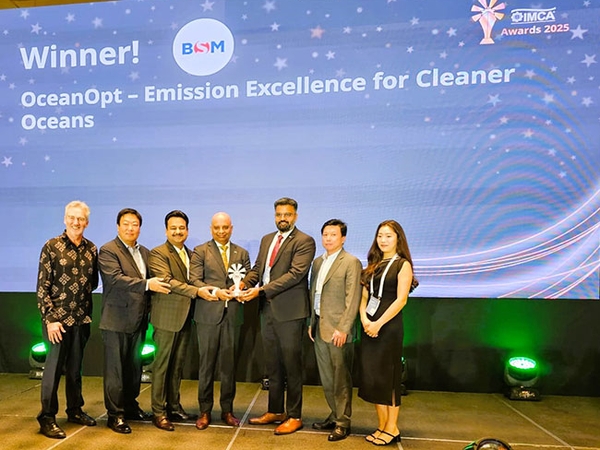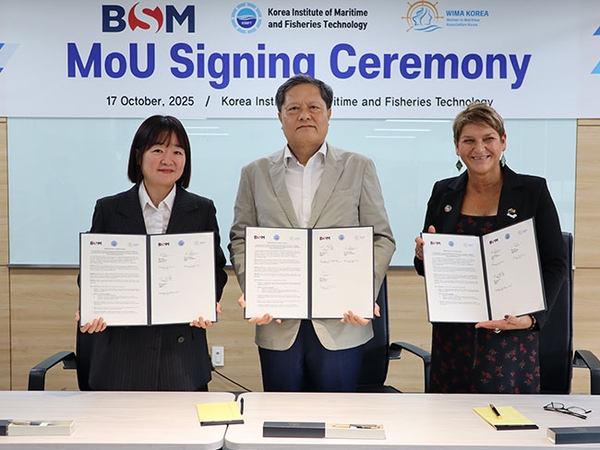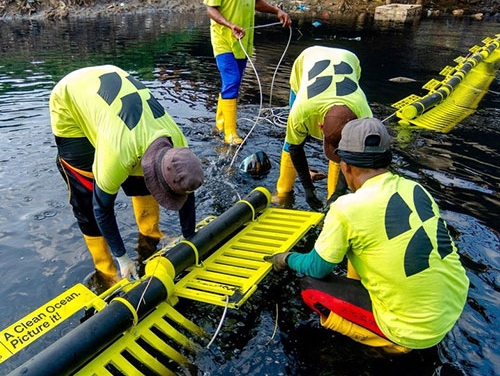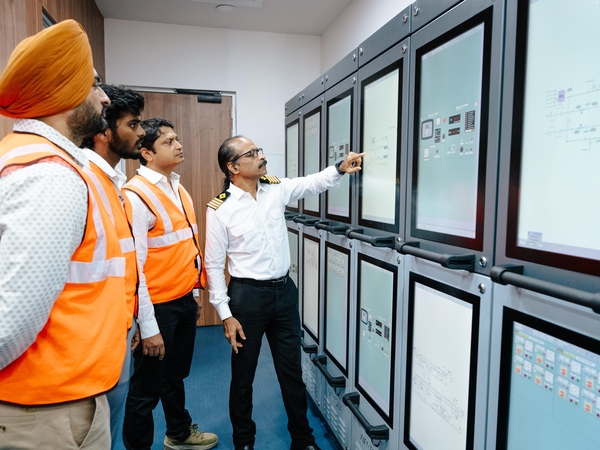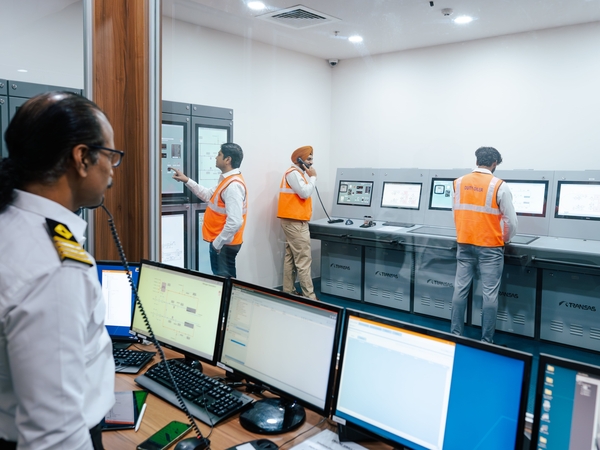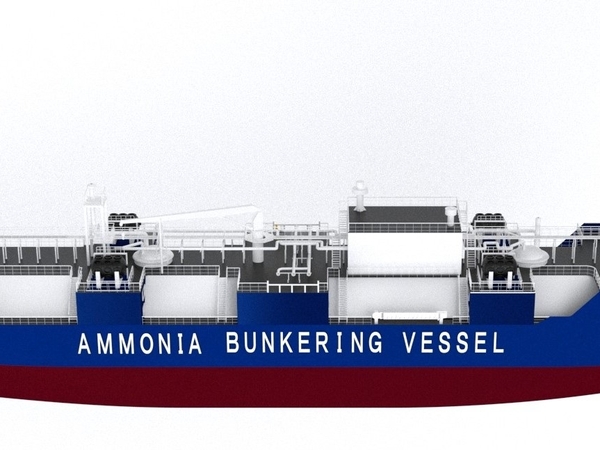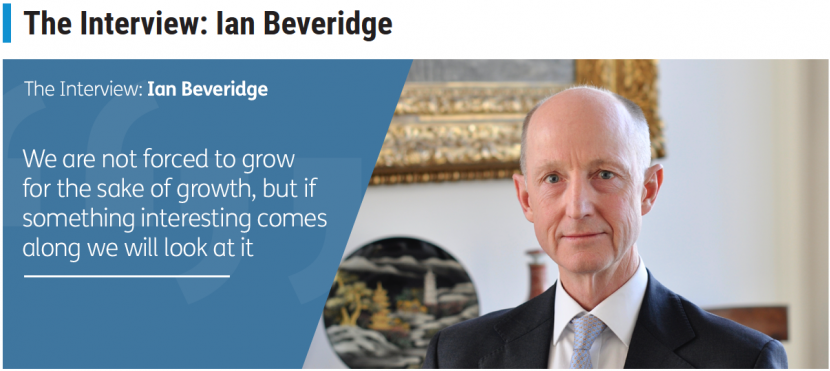
As head of Bernhard Schulte Shipmanagement since the start of this year, Ian Beveridge has been keen to strike a balance between specialisation and differentiating BSM in terms of its technical capabilities and on the other hand the need for volume in the shipmanagement business
IAN Beveridge has his hands full in one of the more complex jobs — or combination of two jobs — in shipping. But if there is any strain he seems to handle it lightly.
The longstanding chief executive of Bernhard Schulte, owner or co-owner of a fleet of about 90 ships across virtually all market sectors, Mr. Beveridge has also taken on the role of chief executive of Bernhard Schulte Shipmanagement since the start of 2018.
The move seems to acknowledge that this is an era of increasing competition and challenge in the third party shipmanagement business. But it also makes internal sense as the group seeks to reduce reliance on ship ownership.
“At Schulte Group level we want to put more effort and resources into the services business,” Mr. Beveridge tells Lloyd’s List. “Shipmanagement is a major part of that but we are also looking into other opportunities in the maritime sector.”
He began his career with the Hamburg-based group in 1991 as chief accountant for Eurasia Shipmanagement in Hong Kong and spent two years there before moving to Hamburg and switching to the shipowning side, becoming chief executive in 2001.
Eurasia was one of six separate group shipmanagers that were united in 2008 under the single brand of BSM. Today the company operates from 10 different locations around the world, the latest office being added in Mexico, but the number of sites is quadrupled if crewing and training centres are added.
Shipmanagement is suffering from “fierce competition”, says Mr. Beveridge. But he also believes that it is a moment of opportunity for those that will survive.
“For the third-party management sector there should be positive developments as quality demands and regulations increase, especially on emissions. More owners should say it makes sense to outsource to cope.” That includes an increasing number of end-users that are becoming interested in owning fleets.
Potential also stems from the fact that third party managers still have only “a relatively small part of the overall shipping pie” — estimates vary from about 13% to 20% at most.
Mr. Beveridge notes that shipowners vary widely in terms of their management models and that BSM has some major shipowners as clients, as well as prospective clients.
“But I would say that our growth is really more from smaller operators who do not have the resources to operate the vessels themselves,” he says.
“The strongest growth will probably be in Asia. At the moment that is where we are seeing quickest growth. In Asia small and mid-sized companies find it is a big investment for them to maintain people and systems suitable for international trading. It makes sense to outsource to someone like us who can do it at a cheaper price.”
Digitalisation, in many minds now closely allied to operational performance and energy efficiency in particular, is an area that can present particular challenges to smaller companies. As such it may often feature among a company’s reasons for outsourcing. BSM believes it is ahead of competitors in this area yet Mr. Beveridge is refreshingly down-to-earth about how far the company and the industry at large have come in this regard.
“Every second medium-sized shipping company is talking about the same thing, but it is still pretty rudimentary in the industry,” he says. “One of the issues in shipping is that there are so many people working on the same thing. Efforts are very fragmented and so we are trying to introduce more partners to work with us on some of these projects.”
A BSM-managed LNG carrier - ‘Getting LNG carriers is prestigious, but we need to grow in all segments’, says Ian Beveridge
BSM had collected “a lot of data” over the years. Mr. Beveridge admits that the company had “not done a lot” with it. But now the group is advancing much faster and has a stronger base for this than most in the business.
“We are maybe unique in having the capability on the software side and having a dedicated fleet performance division,” he says.
The strong focus on digitalisation can be traced back a decade to the merger of the separate shipmanagement companies, prior to which each independently had its own choice of software provider. BSM established a joint venture with a legacy software provider and later exercised an option to buy out the partner.
Sankar Ragavan, a former colleague at Eurasia, was brought back into the Schulte fold as chief executive of the software company. It was soon rebranded MariApps Marine Solutions and has become increasingly visible as a provider of integrated, innovative web-based and mobile-friendly solutions for shipmanagers and owners.
Initially MariApps was tasked with designing software for BSM’s proprietary use, but since then its focus has widened to offer its products competitively to third parties.
“There was a question whether, if this was a competitive advantage for us, did we really want to give it to customers and competitors? But we decided to do it to be able to further fund development and it has been exciting for the team to succeed in selling its software to other big names in the industry. It underlines that theirs is some of the best shipping software in the world,” says Mr. Beveridge.
MariApps already employs about 350 people and further indication of the importance of the software provider to BSM is that new premises for up to 1,500 people are under construction in Cochin, India as a step to ‘future-proof’ the company. A recent addition to the group’s shipmanagement activities was the launch of the Athens-based BSM Fleet Performance Centre as a centre of excellence aiming to maximise energy and operational efficiency for the benefit of vessels that BSM manages on behalf of owners all over the world. The choice of location was influenced by a move back to Athens by a Greek naval architect who had previously worked in the company’s Hamburg office. But, says Mr. Beveridge, Greece offered “good availability of personnel and shipping is in the DNA”.
Even though the centre is a recent initiative, BSM already looks on it as something to develop as a competitive advantage.
The company’s belief in developing specialised expertise extends to segments of the shipping markets. The most obvious is liquefied natural gas carriers, where BSM is a recognised leader ahead of other third-party managers. Earlier this year, it strengthened its presence in the sector by taking over Pronav, a specialised Hamburg-based LNG carrier manager. It has also entered the fledgling LNG bunkering sphere with one of the first LNG bunkering vessels being built under a strategic alliance with Babcock International.
However, the company also considers itself strong in managing very large bulk carriers, with more than half the worldwide valemax fleet of ore carriers under its stewardship, according to Mr. Beveridge. It has recently targeted the cruise business with the formation of Bernhard Schulte Cruise Services, with three cruiseships currently under management.
It also has its eye on becoming more active in managing offshore support and production vessels, although there the strategy might involve acquisition of a specialised firm to help give it more scale in that market segment.
Despite the emphasis on specialisation in areas where entry barriers tend to limit the competition, Mr. Beveridge says that BSM is not shirking ‘bread and butter’ shipmanagement. “It is a volume business,” he says.
“Shipmanagers constantly see vessels leaving the fleet. For BSM it is rare to lose customers on the basis of performance but there will always be a degree of structural churn, so we need to grow to cover the natural turnover in the fleet.
“It is nice to get LNG vessels. It is prestigious. But it does not feed a lot of mouths. We need to grow in all segments,” he says, identifying tankers as a likely source of relatively strong growth as charterers have more stringent standards and a top shipmanager will enhance a vessel’s chances of gaining approval.”
He foresees further consolidation in the shipmanagement sector, saying that smaller management outfits will struggle to remain viable. That said, he differentiates BSM’s position from that of some leading managers.
“The Schulte family has provided a very stable shareholding for generations. So, we are not forced to grow for the sake of growth, but if something interesting comes along we will look at it,” he says.
BSM has shown it is willing to acquire services companies in areas that it deems strategically important, but mega shipmanagement mergers are considered differently. “Integrating an acquisition is a resources-intensive exercise,” says Mr. Beveridge. “We are pretty wary about larger acquisitions.”
Original article below.
Interview by Lloyd's List Maritime Intelligence, August 2018
